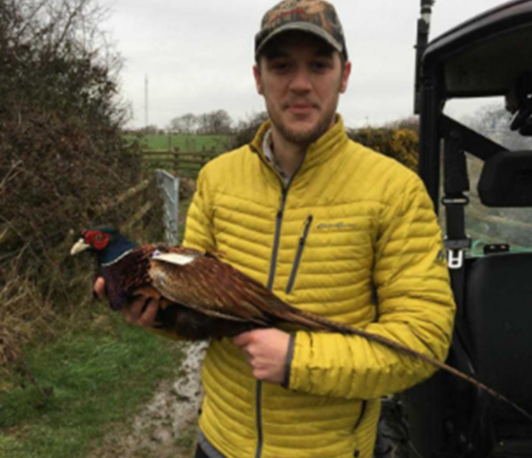Causes and consequences of animal movement in an extensive system
Institute Seminar by Mark Whiteside
- Date: Jan 28, 2025
- Time: 10:30 AM - 11:30 AM (Local Time Germany)
- Speaker: Mark Whiteside
- I am both a behavioural ecologist and an applied ethologist. My research uses sensor-based technologies and controlled experiments to determine how early life can influence behavioural, cognitive and physiological development. My research concentrates on two animals, the pheasant and the sheep. Both these systems have animals that are captively housed for periods of their life, to then be released into wild, extensive environments where they need to navigate, forage and survive natural stressors. This allows me the unique opportunity to experimentally control their experiences and motivations (e.g. social, dietary, learning opportunities) and to describe their individual characteristics (behavioural, cognitive, physiological). After release I can then follow how these traits can influence their movement, behaviour, fate, production, welfare and their environmental impacts.
- Location: University of Konstanz + online
- Room: ZT 702
- Host: Max Planck Institute of Animal Behavior
- Contact: gabriella.gall@ab.mpg.de

Movement is ubiquitous in the animal kingdom. It is often shaped by individual-level responses to risk and resource distribution as well as individual characteristics (e.g. cognitive ability, physiology) which can have fitness consequences and drive evolutionary pathways. In addition, the cumulative movement of animals can drive ecological processes and influence environmental function. These impacts become magnified when releasing large numbers of animals into an environment for agricultural purposes. This places new tools and approaches for quantifying animal movement at the heart of both animal and environmental research in both fundamental and applied frameworks. In this talk I will present how I have used advances in sensors and animal mounted technology to better understand the movement of animals. I will show how I have used experimental approaches from the fields of animal behaviour, psychology, and ecology to disentangle the causes of the movement (e.g. individual cognition, physiological traits) as well as its consequences (e.g. on welfare, production, and environmental impact). This talk will focus on two model systems that are reared in captivity and then released into extensive systems in the UK where they have profound impacts on the environment: the sheep and the pheasant.
The MPI-AB Seminar Series is open to members of MPI and Uni Konstanz. The zoom link is published each week in the MPI-AB newsletter.